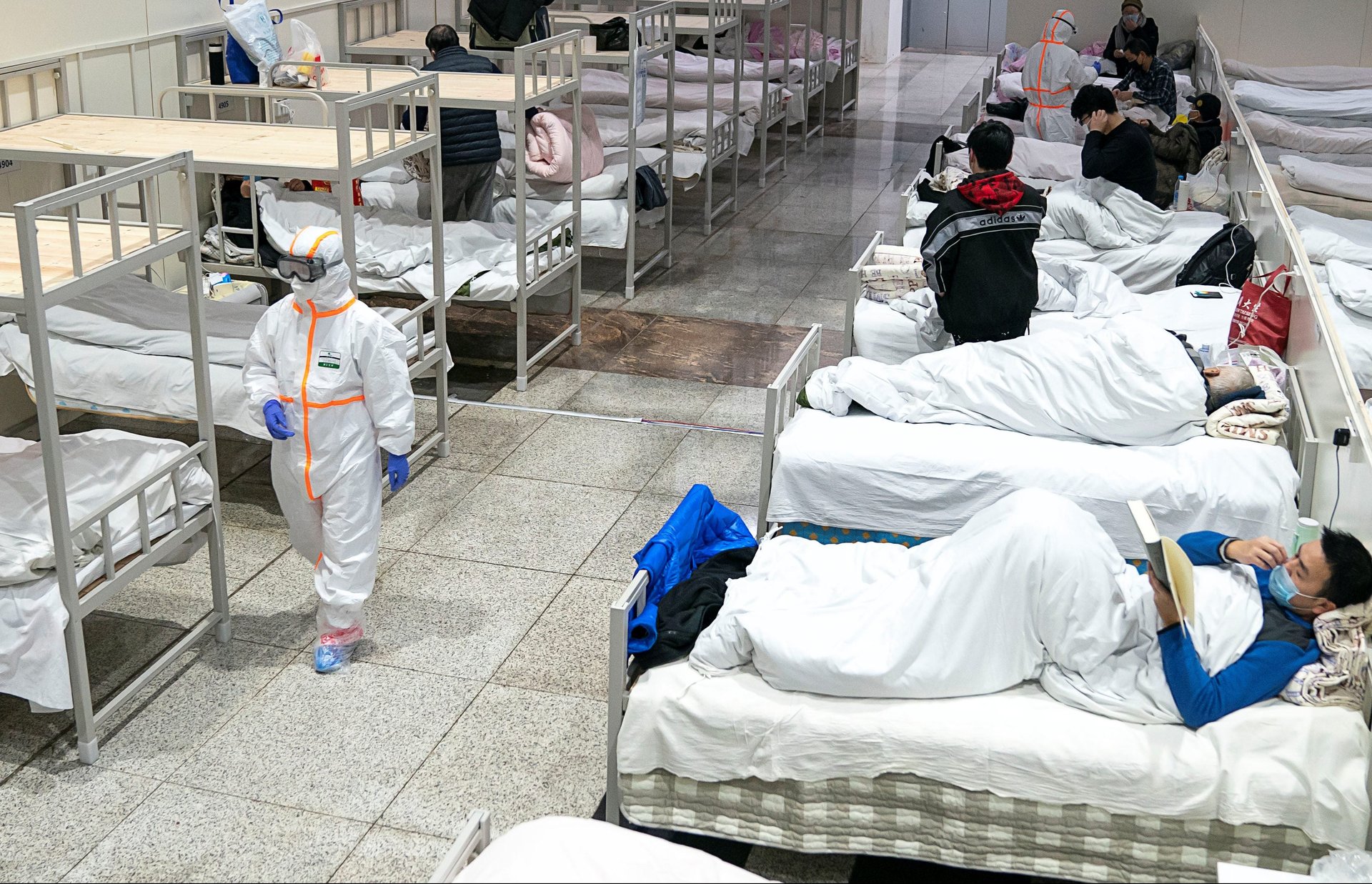Questions swirl after China attempts to censor news of whistleblowing doctor’s death
Li Wenliang, the doctor who initially warned the medical community about a cluster of severe pneumonia cases in December and was reprimanded by Wuhan authorities for that warning, has himself died of the coronavirus.


Li Wenliang, the doctor who initially warned the medical community about a cluster of severe pneumonia cases in December and was reprimanded by Wuhan authorities for that warning, has himself died of the coronavirus.
His death was initially reported by China’s state-run paper Global Times, then retracted, sowing confusion.
After news of Li’s death initially broke Wednesday night in Beijing, the public—which considers Li a whistleblower—mourned his death and directed their ire at Chinese authorities. Then, around midnight, several Chinese media outlets reported that Li was, in fact, still alive.

Wuhan Central Hospital then said that Li, 34, was in critical condition and that the hospital was trying everything to save him. A photo and a screenshot that appear to be leaked from the hospital’s internal communications system quickly circulated on Weibo before it was deleted. Based on the leaked photos, some began to speculate that Li was actually being kept alive. Early morning Thursday, the Wuhan hospital officially announced that the doctor has died (link in Chinese).
Chinese authorities, meanwhile, appear to be trying to censor the news.
Weibo users posted screenshots of a “reporting instruction” from a private chat history on WeChat that appears to instruct local journalists to play down Li’s death. This kind of unofficial notification has been a common censorship practice in Chinese media in recent years. In this leaked chat history, media workers are told to “not use push notifications, not comment on the case, not blow it out of proportion” and should “strictly contain toxic information.”
Amid the confusion, Global Times deleted a tweet labeled breaking news that Li had died, identifying him as “one of the eight whistleblowers who tried to warn other medics of the coronavirus outbreak but were reprimanded by local police.” Later, it tweeted that he was “still under emergency treatment.”
The reports about Li’s death, coupled with the confusion, are likely to fan public anger, which is already running high, over the feeling that government authorities didn’t act quickly enough to inform the public and contain an epidemic that began unfolding in December—as well as the sense that the government is desperate to control the narrative and contain public mourning over someone widely viewed as a whistleblower.
Through Wednesday, the virus has infected more than 28,000, and claimed over 560 lives, according to China’s national health authorities. Numerous cities are under quarantine, affecting some 50 million people, while in many others life has come to a standstill.
For many in China, the Wuhan police treatment of Li and seven others is emblematic of the weakness of China’s political system. At a time when officials should have been sharing information with the public about what was known, being clear about what was not, and telling the public what precautions to take, some officials were focused on quelling information about the illnesses instead. Wuhan’s mayor acknowledged in a television interview that information had not been shared in a timely way, but said national laws prevented him from making disclosures earlier.
Li told Chinese newspaper Beijing Youth Daily (link in Chinese) in a piece published last week that he had told his medical school alumna WeChat group on Dec. 30 that there were seven cases of SARS-like pneumonia in a hospital, a reference to the virus that caused a deadly epidemic in China in 2003. He later clarified that the virus in question was still being identified. On Dec. 31, the city disclosed the presence of 27 pneumonia cases of unknown origin. Police in the city announced on Jan. 1 they had taken action against eight people for spreading rumors about pneumonia, and made the doctor sign a letter on Jan. 3 promising not to disclose further information about the outbreak, the report said. A week later, Li, an opthalmologist, became infected himself from a patient he treated, and was hospitalized on Jan. 12.
Following the newspaper disclosures about Li, China’s Supreme People’s Court last week issued a lengthy article on its social media account reprimanding Wuhan police for being so quick to take action against information that, it noted, was substantially true.
“If the public listened to this ‘rumor’ at that time, and adopted measures such as wearing a mask, strict disinfection, and avoiding going to the wildlife market based on panic about SARS, this may have been a better way to prevent and control the new pneumonia,” it said.
In recent days, Li spoke to both Chinese and foreign media from the hospital, explaining that he passed on information so that his medical colleagues would take precautions, not realizing how widely his messages would be shared, and showing the news outlets the letter that police had made him sign. “I only wanted to remind my university classmates to be careful,” he told CNN.
On social media in China and outside, many mourned him and called him a medical hero. Others said they hoped there would be “no lies in heaven.”
Many in China might hope that Li’s treatment and death would sound an alarm on the dangers of the Communist Party’s information control systems and opacity, but few will be optimistic that things will change. Already in recent days, critical reports and comments on the handling of the coronavirus are starting to be deleted more rapidly than in earlier days. And this week president Xi Jinping told a gathering of party members that it was important to start telling a positive story of the enormous efforts of China’s medical system to battle the virus and “showcasing the unity of the Chinese people.”